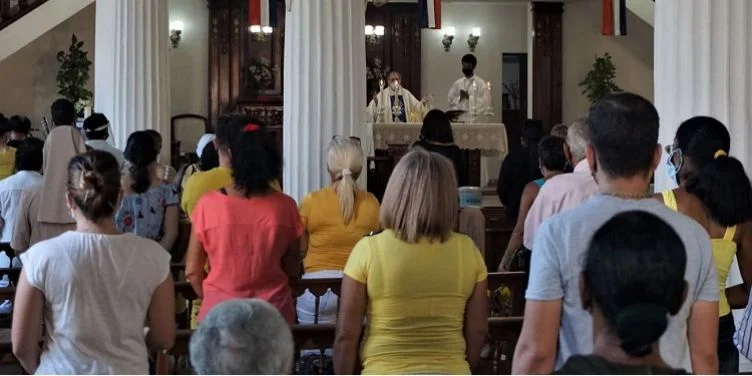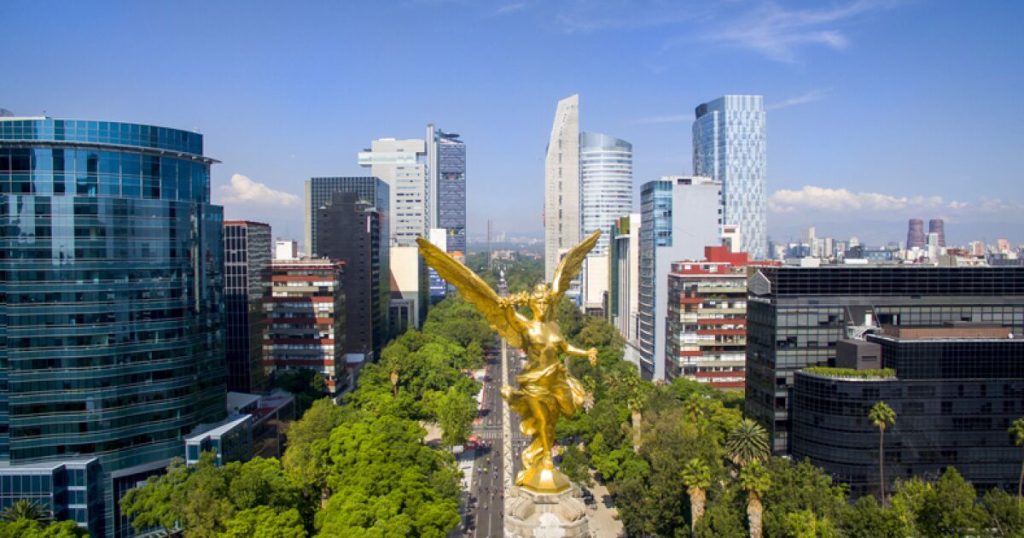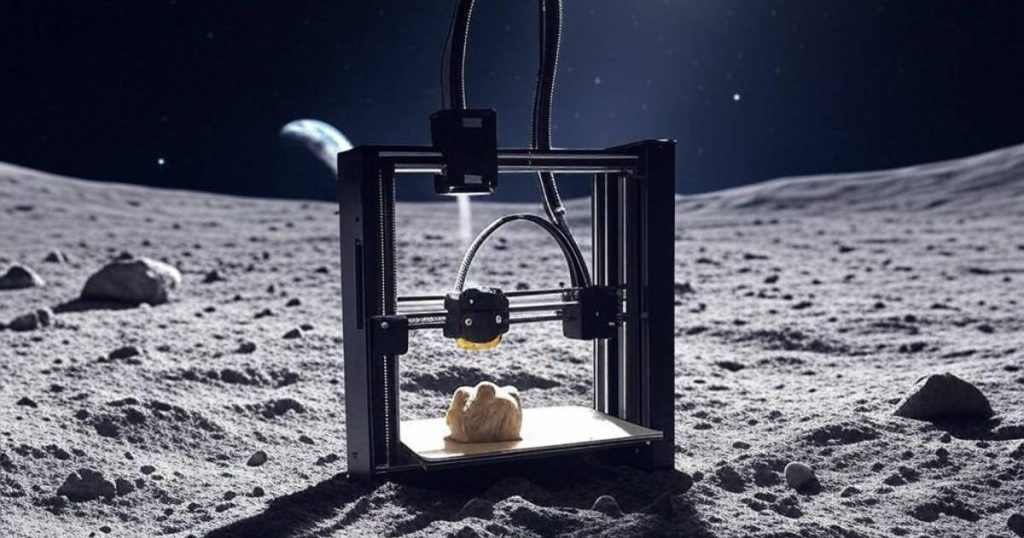MIAMI, United States. – 2024 ends and in Cuba the changes are conspicuous by their absence; In fact, this year has been one of the most difficult that the Cuban people have faced in the more than six decades of Castroism, between electrical blackouts, famine, shortages of products of all kinds, hospitals lacking resources, and the increase in repression. government that further accentuates the hopelessness of a country that is collapsing in a brutal fall, without finding bottom.
So this ending is another year of oppression in all areas. The religious sphere is not exempt. The regime, of course, maintained, as in previous years, a discourse very distant from reality before international public opinion, stating that “the Cuban State recognizes, respects and guarantees freedom of religion and belief without any discrimination.” Although the Constitution establishes that “different beliefs and religions enjoy equal consideration” and that freedom of worship must be guaranteed and protected criminally, the control over the different religious groups by the Office of Attention to Religious Affairs of the Central Committee of the Communist Party of Cuba (PCC), rather indicates that the separation between Church (religion) and State is not something that works in practice and that in Cuba the governing body of everything is the PCC and not precisely the Constitution.
On this issue of primary importance we have compiled the opinions of several activists and religious personalities from inside and outside the Island, opinions that differ completely from the apology that the Cuban regime maintains for itself.
Jorge NunezCatholic layman, microbiologist, writer and Christian humanist, lives in Cuba: “In a country with a single-party communist regime, religious freedom can never be respected in a broad sense. The regime has essentially not changed and proclaims its continuity. It means that we are still dealing with the same regime that persecuted and repressed Christians, that left the churches empty, the regime that sent many Christians to the UMAP because they did not fit with the Guevarian ideal of the new socialist man.”
Teo BabúnCuban American, president and CEO of Outreach Aid to the Americas and Christian philanthropist: “In Cuba, the violation of religious freedom can be attributed to several factors, including:
1. Political history: The Cuban Government has long maintained strict control over society, which has led to the suppression of certain individual freedoms, including religious freedom.
2. Official atheism: For many years, the Cuban Government promoted atheism as an official ideology, which led to the persecution and discrimination of practitioners of various religions.
3. Legal restrictions: Although the Cuban Constitution recognizes freedom of religion, there are restrictive laws that limit religious practice, such as restrictions on the construction of places of worship and the dissemination of religious beliefs.
4. State surveillance: Cuban authorities have maintained constant control over religious communities, monitoring and limiting their activities, which can lead to self-censorship and a lack of freedom to express and practice their beliefs.”
Dagoberto Valdes HernandezCatholic layman, director of the Center for Coexistence Studies, writer and lecturer; lives on the Island: “In Cuba there is no freedom of religion because anyone who tries to be consistent with their faith in the social, political and economic spheres is repressed and threatened. Because they want to reduce religion to an intimate and private cult, reduced within the temples. Because there is an ‘Office for Attention to Religious Affairs’ that controls all religious activity, and gives permission or not to carry out only pseudo-piious acts outside the temples.”
Yoe SuarezCuban exile, writer, editor, independent journalist and Christian activist: “In Cuba there is no religious freedom because believers experience tremendous restrictions to access public space, state media, and to choose the education that will be given to their children, Well, there is only one educational system. To make matters worse, the growing Christian population cannot build new temples or repair old ones without miles of bureaucracy (one that, with all intents and purposes, seeks to affect the social influence of the Church).”
Elsa Morejon HernandezBaptist believer, human rights activist; lives in Cuba: “Freedom of religion is censored in Cuba. Freedom of religion is subject to the will of the Government (PCC). There are religious institutions to which the country’s leadership does not allow their worship meetings, it even prevents them from registering in the registry of State Associations. The entry and distribution of the Bible in the country is only allowed by special permission from Church institutions. In no school in the school system, in their libraries, is the Bible. No printing press in the country, all under the control of the CCP-State, has printed the Bible.”
Amir ValleCuban nationalized in Germany, Christian believer, writer, journalist and editor: “Religious freedom? Faith allowed, faith monitored and faith forbidden: that is what exists in Cuba. A religious freedom conditioned on obedience and submission to the dictatorship. There is no religious freedom when it must be exercised under the boots of the ideology and the ruling political power.”
Berta SolerCatholic believer, leader of the Ladies in White; lives in Cuba: “Religious freedoms are not respected in Cuba. Every Sunday the homes of the Ladies in White activists are besieged by repressors from State Security and the Police, to prevent us from participating in masses in different churches. We are detained near churches or when leaving our homes and we are released after finishing masses and up to 72 hours later.”
Yaxis CiresCuban exile, graduate in Law (Cuba and Spain), director of Political Strategy of the Cuban Observatory of Human Rights: “In Cuba, religious freedoms are not fully respected or guaranteed. The Cuban regime continues to use its surveillance and control systems to monitor and respond to any public expression, especially political, by those who assume a civic commitment in line with the values of their faith. “It also limits the action and social influence of religious entities or congregations, especially those that demand a greater presence in public spaces and in communities.”
Annia ZamoraCatholic believer, activist of the Ladies in White, mother of political prisoner Sissi Abascal: “I consider that in Cuba there is no religious freedom because in our case, Ladies in White, we are detained, no matter the day or the hour. The imprisoned ladies in white do not have that right either, there is no religious chapel or anything similar in the prisons, nor do they receive prison chaplaincy. “I can say that my daughter Sissi, like Sayli Navarro, suffer a lot from not having spiritual assistance.”
Osvaldo GallardoCuban-American, Catholic believer, editor, professor, writer, librarian and cultural promoter: “This may seem like a very categorical statement: religious freedom in Cuba is a currency. And freedom, whatever its surname, cannot be a bargaining chip. There is no freedom in Cuba at all… There has been talk of freedom of religion; there isn’t either. Well, if the cult represents a threat it can be invaded; In fact, all religious communities are stalked by the political police. Every action related to religious freedom is manipulated, directed, monitored. The Father Totalitarian State has been incarnated in the ecclesiastical hierarchies and dictates to them, even from their conscience, what they should do and what not.”
Ivan Hernandez CarrilloCatholic believer, former political prisoner, librarian and journalist, member of the Pedro Luis Boitel party; lives in Cuba: “The regime continues to use its apparatus of political repression to persecute any public expression of faith, especially in the civic-religious sphere. The most eloquent examples are those of the Ladies in White, who are not allowed to attend mass on Sundays. Prison authorities also deny religious assistance to political prisoners. Although the regime has authorized processions on the Island, prohibitions still continue in some parishes, mainly in Havana and Oriente. This year, the authorities prohibited the holding of religious processions during the Holy Week celebrations.”
Carlos Sebastian Hernandez de ArmasCuban exile, Baptist pastor and historian: “There are many reasons to expose that religious freedom in Cuba is violated:
1. The Office of Religious Affairs of the Central Committee of the PCC with its tentacles in each municipality.
2. The ostracism to which the Government subjects the church: zero presence in the media, public worship prohibited, or anything outside the temple. Purchasing new properties is prohibited.
3. Continued threats on pastors and leaders to silence their freedom of expression.
4. Government control over the Church Council of Cuba. The regime forces the different denominations, even if they are not members of the Council, to go to them for any type of procedures: literature, visas, construction permits, etc.”
Alberto ReyesCatholic priest, writer, lecturer; lives in Cuba: “It would be very obvious if they prohibited religious worship, that’s why they allow it, even though they spy on us. Everything that could cause mass awareness is cut in the bud because they cannot allow a discordant voice, much less when that voice places its foundation in God. The system in Cuba is totalitarian, the church, by definition, is a school of freedom; That makes us antagonistic. That is to say, the Government in Cuba needs to have control over everything, therefore it is not going to allow the church to deploy a whole range of actions that can influence the mentality of the people and help them think.”















